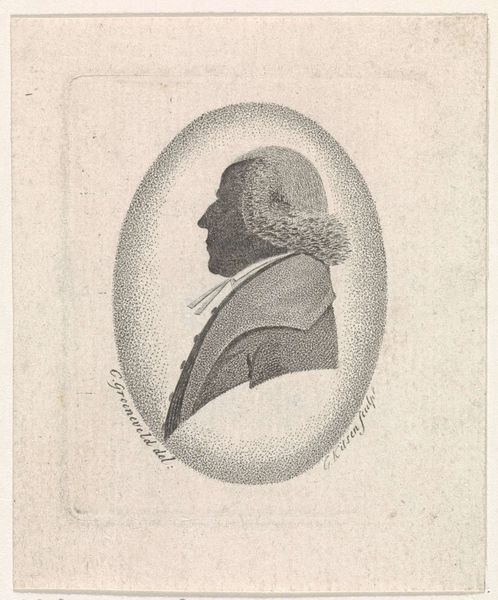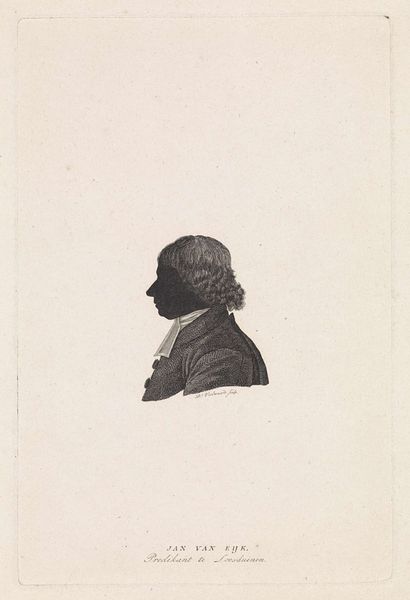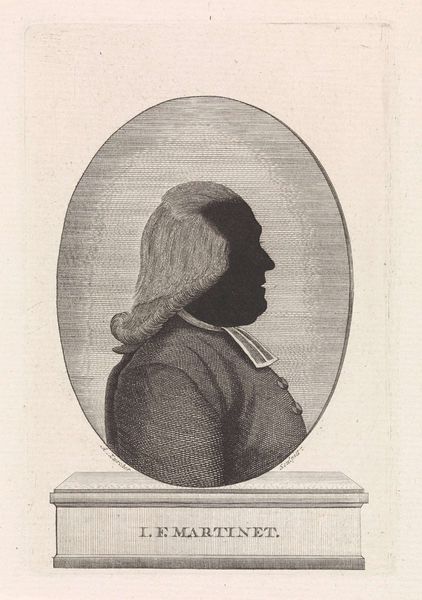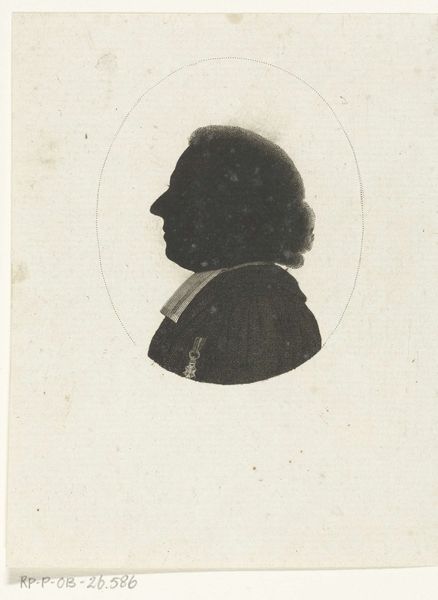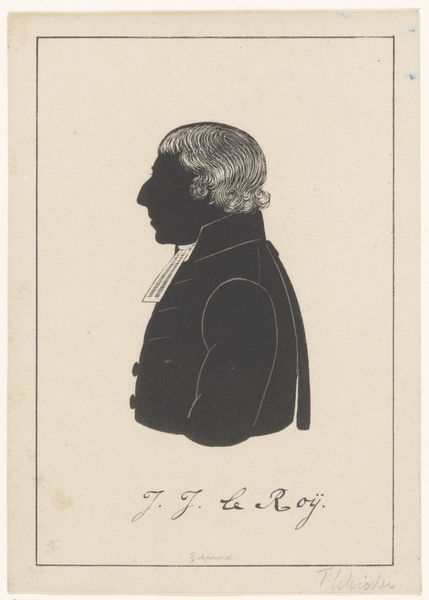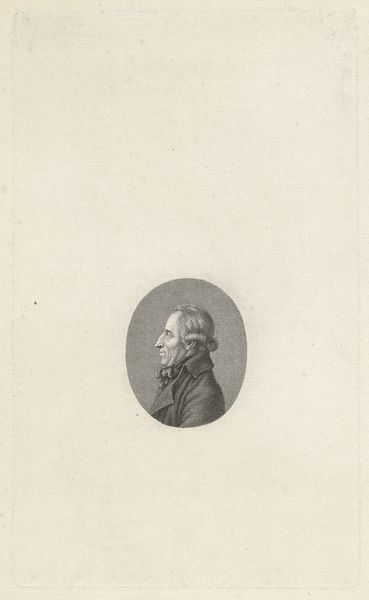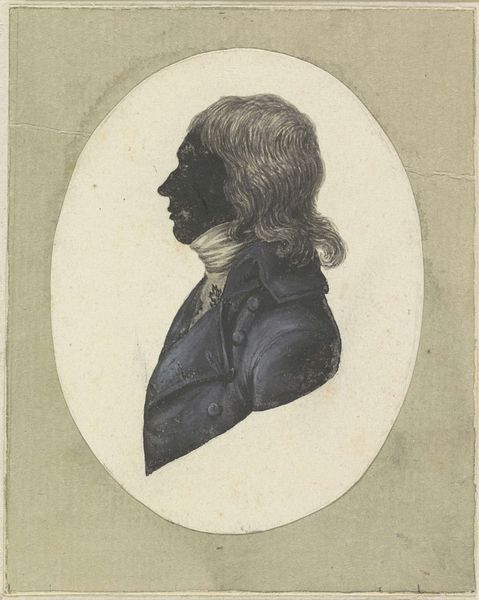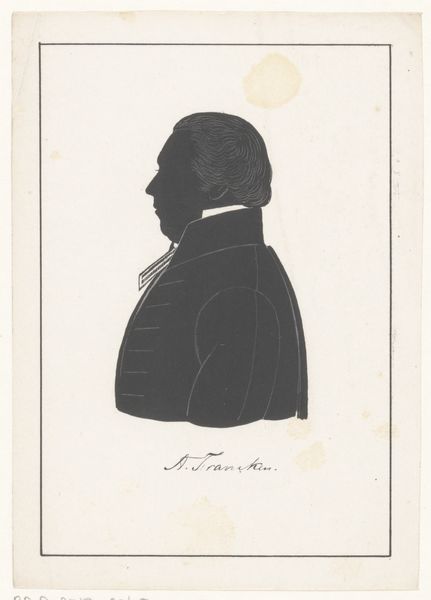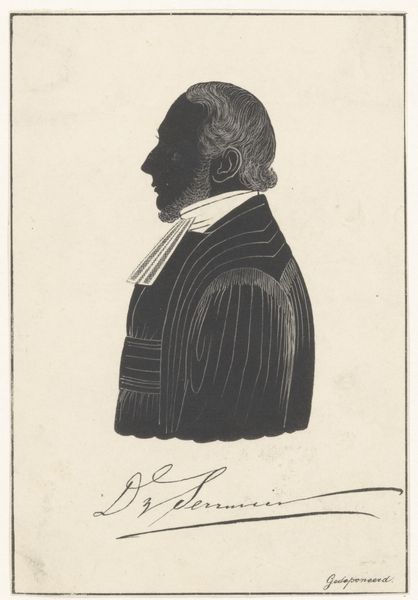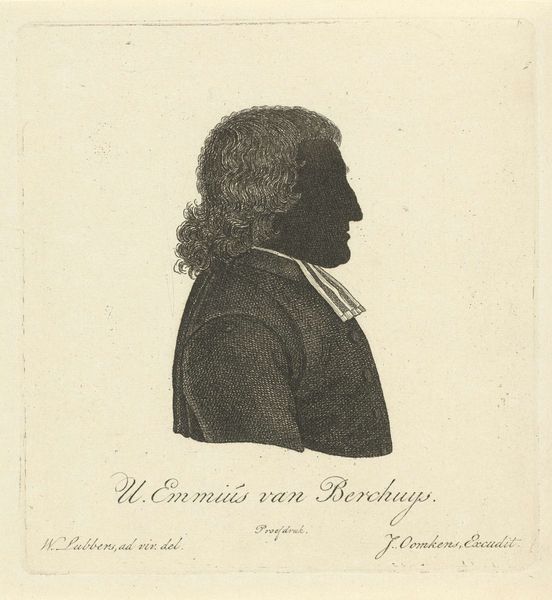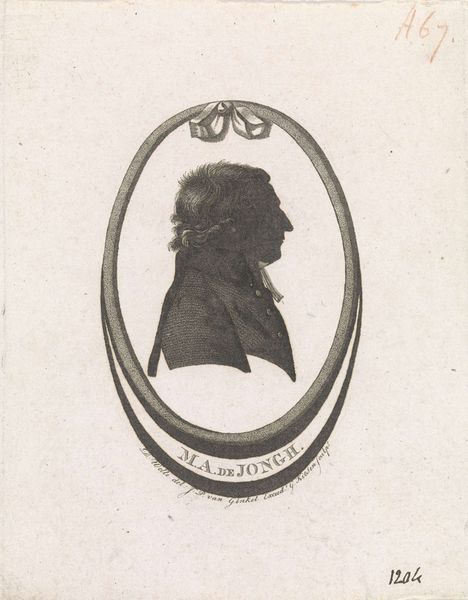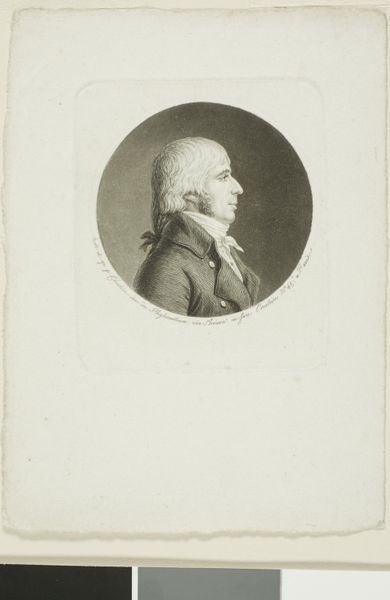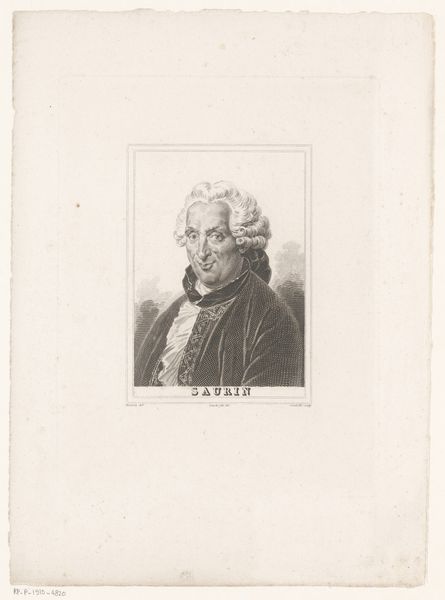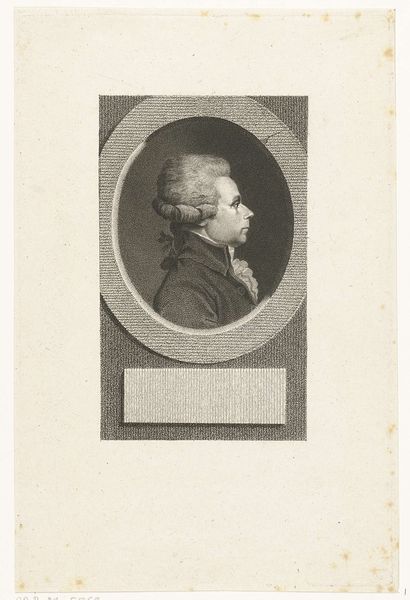
drawing, print, pencil, engraving
#
portrait
#
pencil drawn
#
drawing
#
neoclacissism
#
16_19th-century
# print
#
pencil sketch
#
old engraving style
#
figuration
#
pencil
#
engraving
Dimensions: height 184 mm, width 120 mm
Copyright: Rijks Museum: Open Domain
Editor: So, this is a silhouette portrait of Nicolaus van der Tuuk. It’s an engraving, dating from around 1808 to 1844. I’m struck by the simplicity of it. Just a profile, almost entirely black. What do you see in this piece, beyond the obvious? Curator: Beyond the individual portrait, it presents us with a fascinating snapshot of societal values during that period. Silhouettes were immensely popular. Why do you think that was the case? Editor: I guess it was a cheap and quick alternative to painted portraits, so it was more accessible to a wider public? Curator: Precisely. This accessibility democratized portraiture. It allowed a broader range of people to participate in the creation and dissemination of their own images. It moved portraiture away from the elite and made it almost a form of popular culture. But, note how even in its simplicity, the subject's status is subtly conveyed through his hairstyle and clothing. The clean lines speak to a neoclassical taste for order and clarity which very much aligns to the aesthetic of the day. Editor: That’s interesting! I never really thought about silhouettes as a form of social commentary. I was only focusing on the surface level. Curator: Art, even in its simplest form, often reflects deeper social currents. Editor: This makes me think about how even simple artistic choices can become intertwined with a larger societal narrative. Curator: And how the museum context itself impacts how we value an image! Editor: Absolutely, I agree. Thanks, that gives me a new way of thinking about the period.
Comments
No comments
Be the first to comment and join the conversation on the ultimate creative platform.
